“It is in collectivities that we find reservoirs of hope and optimism.”
I first learned about Angela Davis as an undergrad student. I knew that my activism and political engagement were underdeveloped, and my late teen self was desperate to be as informed as I possibly could. After years in a tight-knit, Catholic bubble (somehow denying the fact that I was, myself, a queer woman of color), I remember consuming more and more feminist, anti-racist, and anti-capitalist texts, and resonating with their messages in an invigorating way. I read Davis’ Women, Race, & Class, not always understanding every word of it, but being driven by the notion that all of these things were intertwined. It was one of my first encounters with intersectionality, and it informed my understanding of oppressive systems in a way that’s stayed with me years later. Retrospectively, my lateness to social justice was also a reflection of privilege, and my whole political awakening was pretty cliché, but in the moment it felt special. Knowledge gave me a drive to act. It gave me hope –– something I’ve struggled to hold onto, but that feels important, if not necessary. I think that’s why I recall this period of late adolescence so fondly. I was angry and activated, furiously learning and determined to take down the system!

via Bettmann/Bettmann Archive
In 2020, watching videos of Davis speaking on panels or at protests has been grounding and mobilizing. She continues to guide me, and all of us who hope for change, through the often hellish terrain. And of course, this isn’t new. Davis has been a pillar in the feminist abolitionist world for decades, and excels at directly addressing the myriad of oppressive systems in our culture. She’s advocated for issues before they were even close to the mainstream discussion, and she’s been firm in her beliefs throughout. The legendary Alice Walker wrote: “Angela Davis has stood her ground on every issue important to the health of our people and the planet. It is impossible to read her words or hear her voice and not be moved to comprehension and gratitude for our incredible luck in having her with us.”
As Davis says herself, “freedom is a constant struggle.” This simple phrase captures a heavy but critical truth. Among the many painful lessons that 2020 has taught us, a recurring one is that shit is bad. This also isn’t new. American society is and has been corrupt on a deep, systemic level since its inception, and attempting to reform, agitate, reorient, and redistribute are honorable but undoubtedly tiring tasks. Beyond that, attempting to be plugged in to the urgent issues, on both a national and global scale, leaves one in a constant state of lack; there’s always more to fight against, there is always another violence, scheme, or deal on the table. And in this mix of fatigue also lies hesitation –– folks who feel unequipped to advocate for something, because they think they don’t have enough knowledge around a certain issue.
While the internet makes information readily available, it can be difficult to become fully versed on every conflict and law spurring contention in the world. (Like, do I fully understand campaign finance reform? Or the way that internet usage is environmentally destructive? Or the breadth of historical violence against LGBTQ folks in my father’s Arab homeland? Admittedly, no.) But we can try. We must! The duty of explaining deep, historical traumas or contemporary calamity cannot fall solely on those who have the first-hand experience. Without a doubt, these voices must be listened to (the last thing we want is a “woke white people” echo chamber), but we have to be conscientious of adding labor to bodies who are already trudging through barriers of oppression, merely to exist.
A (Brief) Guide to Reading Angela Davis
With such an expansive collection of material, Davis is helpful in tracing the evolution of various global social movements. But where to start!? Her book Freedom is a Constant Struggle is my recommendation (although all of her texts are undoubtedly necessary; Add Are Prisons Obsolete? next on your list.) Freedom weaves several of her interviews, speeches, and writing from the last ten years, offering an intersectional lens that is consistently accessible, thoughtful, and anti-racist. Although more contemporary, she never fails to engage with deep history. The book’s subtitle is “Ferguson, Palestine, and the Foundations of a Movement,” and indeed, she does create ties between these topics, like explaining how Israeli police have been involved in U.S. police training or how military presence in Ferguson, after the killing of Michael Brown, mirrored daily life in Gaza. She contemplates: “Initially, intersectionality was about bodies and experiences. But now, how do we talk about bringing various social justice struggles together, across national borders?” This question, and the manners through which the book attempts to answer it, are why I consider it an excellent entry point.
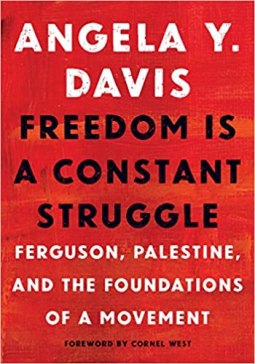
In Freedom is a Constant Struggle, Davis also breaks down complex structures, like G4S, the transnational security mega-company responsible for the “maintenance and reproduction of repressive apparatuses” including, largely, prisons. She explains how notions of security “blur the boundary between schools and jails” as well as create a palpable hostility among civilian life: “The wall, the concrete, the razor wire everywhere…before Palestinians are even arrested, they are already in prison.”
This is a global phenomenon, and a global militancy –– Davis brings to light that “the most profitable sector of the prison-industrial complex is immigrant detention and deportation,” which G4S manages in the United States. In the chapter “Feminism and Abolition: Theories and Practices for the 21st Century” Davis unpacks the disproportionate levels of violence against trans women of color, and also includes her own recommended reading on prison abolition from a number of trans scholar-activists. She sees feminism as something less tied to a specific object or body, and more as a methodology to approach “racism, the prison-industrial complex, criminalization, captivity, violence, and the law.” Basically, add this book to your shopping cart.
If you’re looking to get more familiar with Davis, also check out this somewhat famous clip of her speaking from jail in San Francisco (which is part of the Swedish documentary The Black Power Mixtape 1967 – 1975 .)
And more recently, Davis was interviewed by Ava Duvernay for Vanity Fair (what a magical sentence to write.) They talk about capitalism, isolation, COVID, and what true, radical change might look like.
Further Radical Reading for 2021
Whether you’re a seasoned or novel activist, there are always ways to grow our thinking. The good news is there’s a multitude of literature by radical thinkers, writers, and artists (including Davis) that can help! With these texts, we can continue to get out there and do the work. (Plus, it’s a great way to support your local bookstore, which is, unfortunately, probably struggling this year.) Without debating the legitimacy or effectiveness of New Years’ Resolutions, I wonder –– what if we all committed to a revolutionary reading list for 2021? What would we learn? And with this, what would we do? Here are some texts that have particularly moved me in recent times.
Glitch Feminism by Legacy Russell

Self-described as a manifesto, this book speaks directly to the generation of young adults who grew up on the internet, or who found themselves turning to the internet as a source of self-formation. What I mean by this is: if you had a cringe-worthy AIM account that consumed your days and felt like a magical avatar through which you could say and achieve and embody selves beyond your self, this book will feel relatable. Russell theorizes on technology and queerness, asking how “glitching” can be a site of possibility and whether or not our cyberselves can be catalysts for social change. Dive in for some brilliant anecdotes on corporeal art, celebrating failure, and decolonizing the digital landscape.
JUST US by Claudia Rankine
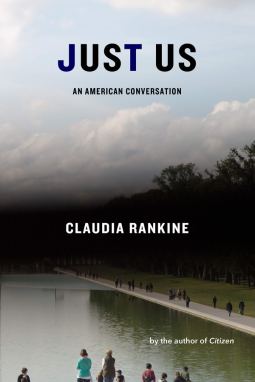
JUST US came out earlier this year, but if it hadn’t, one of Claudia Rankine’s other books would definitely be on this list. Citizen and Don’t Let Me Be Lonely are texts I’ve returned to again and again. Rankine is a master at capturing what we often refer to as micro-aggressions––the racist underbelly of so many of our daily interactions. She renders these incidents through beautiful, lyrical prose and poetry. She is always in conversation with other documents, histories, and works of art, and is a brilliant testament to the notion of the personal being political. JUST US examines whiteness and provokes a deep, ongoing interrogation of white guilt and white denial in the last several years.
Emergent Strategy by adrienne maree brown
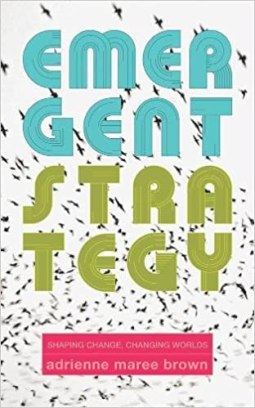
I always offer this text to friends (or to myself) when nihilism begins to creep in. adrienne maree brown’s approach to organizing, social change, and true transformation are rooted in the belief that our individual, day-to-day conversations actually have an effect, while also making room for the very human, ever-changing emotional whirlwind of being a person that wants to create a better future. Every page bubbles with potential, inspired by the work of Octavia Butler, and the way she theorized on the human relationship to change. Think of this as a guide for intentional, mindful, but actionable pathways to sparking radical change across communities.
Carceral Capitalism by Jackie Wang
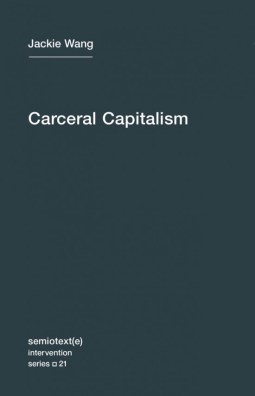
If you’ve ever wanted to read a book that thoroughly examines the prison-industrial complex and predatory policing, but also feels personally motivated, and then also maybe ends with some absolutely stunning pieces of poetry, then this book is for you. Wang, an abolitionist and scholar who recently completed a Ph.D at Harvard, has crafted a book that feels incredibly urgent and unlike anything I’ve ever read on the topic.
ALLIES from The Boston Review
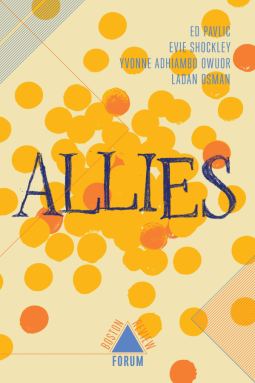
I believe so firmly in art’s potential to meaningfully contribute to activism. And so does this anthology! Collected here are essays, stories, and poems that question what it means to be an “ally” or, if allyship is even really possible. It returns to inquiries around how we situate difference, and how we relate to each other across global catastrophes and violence.
Postcolonial Love Poem by Natalie Diaz
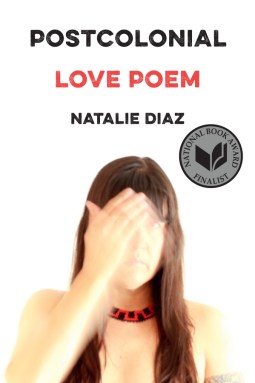
Ok, maybe it’s not an “activist text” per-se, but it feels pretty radical to read gorgeous poems about lesbian love, Indigenous history, and intergenerational trauma. The poem If I Should Come Upon Your House Lonely in the West Texas Desert is just…wow. I won’t say more as a tender encouragement for you to pick up the book and see for yourself.
Experiments in Joy by Gabrielle Civil
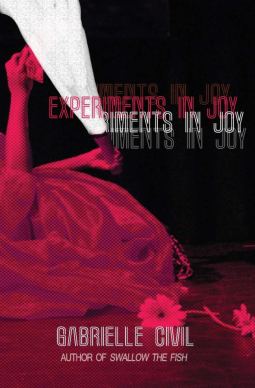
And just like art, poetry, and mindful interactions can be radical, so can joy. It all goes together, really. Gabrielle Civil is a Black feminist performance artist and writer, who asks: “What can people do together that we can’t do alone? What can we discover in ourselves only by way of other people?” Through essays, letters, performance scores, and other forms of writing, Civil’s book offers so much insight into the magnificent potential of collaboration, and how through this lens, we can arrive at a place of internal reckoning that drives us to be more whole, genuine, and able to take on both personal and sociohistoric challenges.
There are countless others besides these. I’ve learned and continue to learn from Audre Lorde, Keeanga-Yamahtta Taylor, Patrisse Cullors , and many more individuals, collectives, movements, and organizers. I’ll end by returning, though, to this notion of hope, which I think many of these works make room for, if not insist upon. When I say we should have hope, I don’t mean it in a naive, “ignorance is bliss” type of way. Rather, when I say that hope is vital, I say it knowing that having hope is crucial to being a successful activist.
Angela Davis, as always, seems to have formulated the language long before my mind knew how to put it: “Sometimes we have to do the work even though we don’t yet see a glimmer on the horizon that it’s actually going to be possible.” The work is heavy, and hard, and continual, and although a book won’t save us, it can get us in the right direction. We are never alone in our work, in our healing, in our fighting –– go into the new year sustained by pages that remind you of this.

Ohh thank you so much for this! Wonderful list :)
thank youuuuu!!!
wanna also shine a light on adrienne maree brown’s new & short “We Will Not Cancel Us: Breaking the Cycle of Harm” – i’m hearing a lot of questions about how to navigate conflict & repair & mistakes with people also working toward a better future, and adrienne has some really helpful things to say about that!